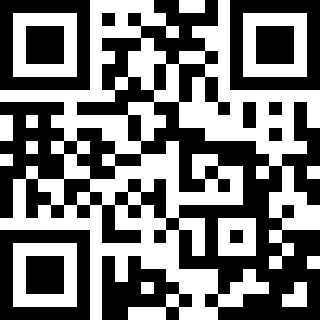2024 Taiwan International Mission Idea Contest on CubeSat
Purpose
The 2024 Taiwan International Mission Idea Contest on CubeSat (TIMICC 2024) is jointly organized by Taiwan Space Agency (TASA) and the Department of Aerospace Engineering in Tamkang University. The contest aims to inspire creativity by designing innovative and noteworthy space programs/missions using CubeSats.
Eligibility for Participants
High school and university students from both Taiwan and international institutions
Researchers or corporate professionals in Taiwan
Individuals or groups from Taiwan with an interest in CubeSats and the aerospace field
Each team must consist of 3 to 8 members, who can come from diverse backgrounds. Each team is allowed to have 1 to 2 advisors.
Remarks:
- Participants are not permitted to use content from current projects, funded research, or proposals under review by TASA or other space agencies.
- Each person is limited to registering for one team.
- An international team is defined as a team where all participating students are enrolled in schools that are not governed by the Ministry of Education of the Republic of China (Taiwan).
- In order to promote the internationalization of this contest, the finalist from international student team will receive subsidy of NTD 40,000 (around 1,300 USD) per team for attendance this year. A maximum of three intermational teams will be funded, selected based on the ranking of their qualifying scores.
Contest Theme
Conduct a concept design for a CubeSat, using CubeSats to execute innovative space programs/missions.
Competition Requirements
The designed space program/mission must utilize CubeSats no larger than 6U. Participants may use a single satellite or multiple satellites to form a constellation or even a formation. There is no limit to the number of satellites in the constellation, but the design must showcase the benefits and features of the satellite constellation. The program/mission can be of a constellation type (satellites not communicating with each other) or a networked type (satellites communicating with each other).
This contest focuses on concept design, and the satellite design must reach at least "Technical Readiness Level (TRL) 3" or meet the standards of a "System Design Review (SDR)." To align with Taiwan's new "Phase III Space Program," the satellite design content is encouraged—but not limited to—the following three main themes: (a) B5G communication constellations; (b) Deep space exploration programs; (c) Applications of artificial intelligence in space technology.
Evaluation Criteria
| Evaluation items | Score | Description | Remarks |
|---|
| Originality | 30 points | The social impact, potential to expand scientific knowledge, and motivation to enhance deep space missions. New concepts, unimplemented or proposed ideas, or new implementations of existing capabilities or services. | After the conclusion of the contest, the evaluation results and review comments will be published in a de-identified manner to assist all teams in making improvements for future reference. |
| Impact | 10 points | The social impact, potential to expand scientific knowledge, and motivation to enhance deep space missions. |
| Technical and Operational Aspects | 40 points | Description and solutions for CubeSat technical aspects. This includes subsystems such as payload, communication systems, and orbital design. |
| Feasibility Assessment | 20 points | Evaluation of various budgets (cost, mass, power, etc.). |
Important Dates
| Event | Date | Description | Remarks |
|---|
| Online Briefing Session (Chinese) | 07.31.2024 10:30-11:30 | Video:https://drive.google.com/file/d/15eCMPI4gHgZn-19zsEViftqngx7RZtLR/view?usp=drive_link Held online, the URL -https://tinyurl.com/TMC24BRFC 
| - Due to the tight schedule, the above dates will not be changed or postponed.
- Additional information will be announced on the official contest website; no further individual notifications will be provided. Please stay tuned to the contest website for updates.
- Only shortlisted teams are required to submit the full paper and participate in the oral presentation. All participating teams, regardless of whether they are shortlisted, are welcome to attend the presentations.
- The committee can be reached via email: timicc2024@gmail.com
|
| Online Briefing Session (English) | 08.12.2024 | A pre-recorded video will be uploaded, and the link will be announced later. Should audiences have further questions, feel free to contact the committee via emails. |
| Submission of Extended Abstract | 08.31.2024 | - The extended abstract should include a short abstract of about 200 words and a brief overview of the satellite design. There are no specific format requirements for the extended abstract, but it should be written in single-column format and should not exceed 4 A4 pages.
- The link to submit extend abstract :https://tinyurl.com/TMC24Xabs
|
| Notification of Results | 09.21.2024 | Approximately 8-10 outstanding teams will be selected from the submissions to present at the conference. |
| Submission of Full Paper | 11.01.2024 | The full paper must meet the relevant formatting standards. Please download the paper template from the website and submit a PDF file. The full paper must be written in English, detailing the satellite design, and should be limited to 6-8 pages. download the paper template  |
| Oral Presentation | 12.02.2024 | Teams that receive notification of selection will present their projects in the afternoon at the Kaohsiung Exhibition Center on 2024/12/02. The presentation must be conducted in English. The Q&A session after the presentation can be conducted in either Chinese or English, but English is encouraged. |
Agenda for TIMICC 2024
Room 306 @ Kaohsiung Exhibition Center
08:30 — 09:30 | Sign in at the TIMICC check-in counter at Room 306 |
10:00 — 12:15 | TASTI open ceremony and keynote speech |
12:15 — 12:50 | Lunch |
12:50 — 13:00 | Contest open ceremony |
13:00 —13:15 | Team 6 Taiwan-India Lunar Dust Analysis (TILDA) Mission |
13:15 —13:30 | Team 3 Yutu Explorer |
13:30 — 13:45 | Team 11 RISat |
13:45 — 14:00 | Team 7 Intersteller Guardians |
14:00 — 14:15 | Team 8 TILMaC |
14:15 — 14:30 | Team 5 Explorers |
14:30 — 14:45 | Team 1 SATELLA |
14:45 — 15:00 | Team 2 Nebo eye |
15:00 — 15:20 | Coffee Break |
15:20 — 15:35 | Team 4 SolarSizzle |
15:35 — 15:50 | Team 13 Maheswara |
15:50 — 16:05 | Team 9 Sailor Moon |
16:05 — 16:20 | Team 10 YKS Aerospace |
16:20 — 16:35 | Team 12 Deep Space Sentinel |
16:35 — 16:45 | Break and Discussion |
16:45 — 17:00 | Awards ceremony |
Remarks:
- The presentation order is the result of random sorting.
- Each group has 1 minute for changing the stage and preparation, followed by a 10-minute presentation and a 4-minute Q&A session.
Awards
First Prize: $60,000 NTD (approximately $2,000 USD)
Second Prize: $30,000 NTD (approximately $1,000 USD)
Third Prize: $15,000 NTD (approximately $500 USD)
Remarks:
- Prize money will be awarded in New Taiwan Dollars (NTD).
- In the event of a tie, the prize money will be equally divided. For example, if two teams share the first place, the first and second place prize money will be combined and divided equally, resulting in each team receiving $45,000 NTD. ((60,000+30,000)/2 = 45,000)
TIMICC 2024 Sponsorship Program
- The organizers are in discussions with ANSYS regarding the sponsorship of the STK software.
- In addition to STK, it is recommended to use GMAT for orbital simulation. GMAT, developed by NASA, is a free orbital simulation software. Although its functionality and animation effects are not as advanced as commercial software, it is sufficient for basic simulation. GMAT can be downloaded from the following website: GMAT Software.
Register teams
teams list download 
TIMICC 2024 Preliminary Results Announcement:
- This year, there were a total of 13 submissions. Initially, 8-10 teams were to be selected for the finals. However, since the number of entries was slightly more than 10, and the contest schedule can accommodate all the teams, and considering the outstanding quality of the 13 submissions, the organizing committee has decided that "all 13 teams will advance to the finals" to promote space education and encourage research in the space field.
- Based on the preliminary evaluation scores, Teams #2, #8, and #13 will each receive a travel subsidy of NTD 40,000.
- The complete preliminary evaluation scores and the judges' feedback will be sent to each team via email as a reference for improving their work in the finals.
Competition results
- First Place: Team 1 "SATELLA" by members from National Cheng Kung University (TAIWAN) under supervision of Woei-Leong Chan and Yu-Jui Liang
- Second Place: Team 2 "Nebo eye" by members from Beijing Institute of Technology (P.R. CHINA) under supervision of Weidong Hu
- Third Place: Team 11 "RISat : RIS CubeSat Mission" by members from National Chi Nan University (TAIWAN), University of Michigan (U.S.A), and National Taiwan university of science and technology (TAIWAN), under supervision of Yinman Lee